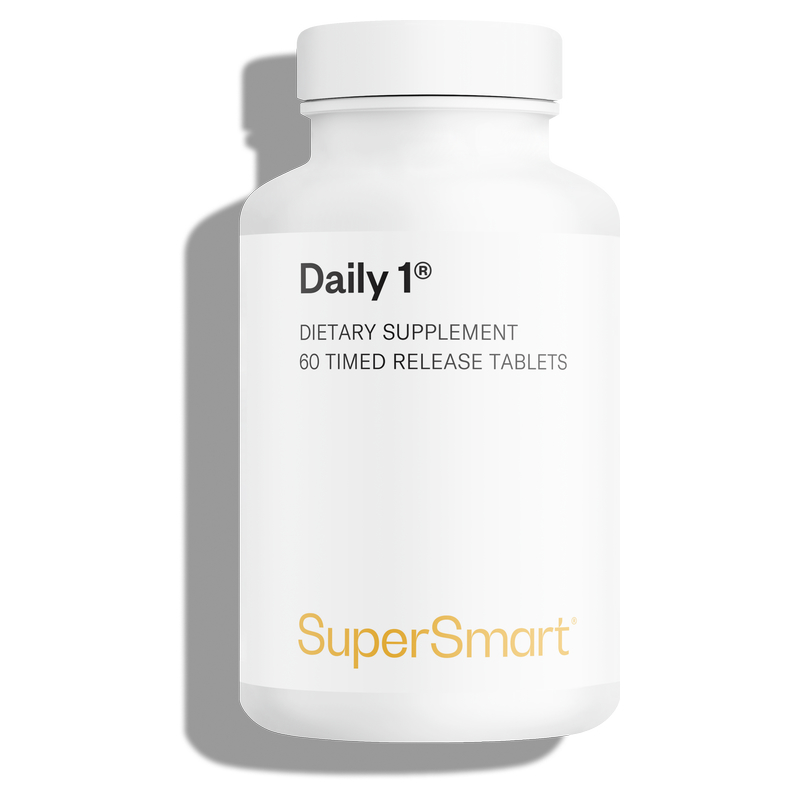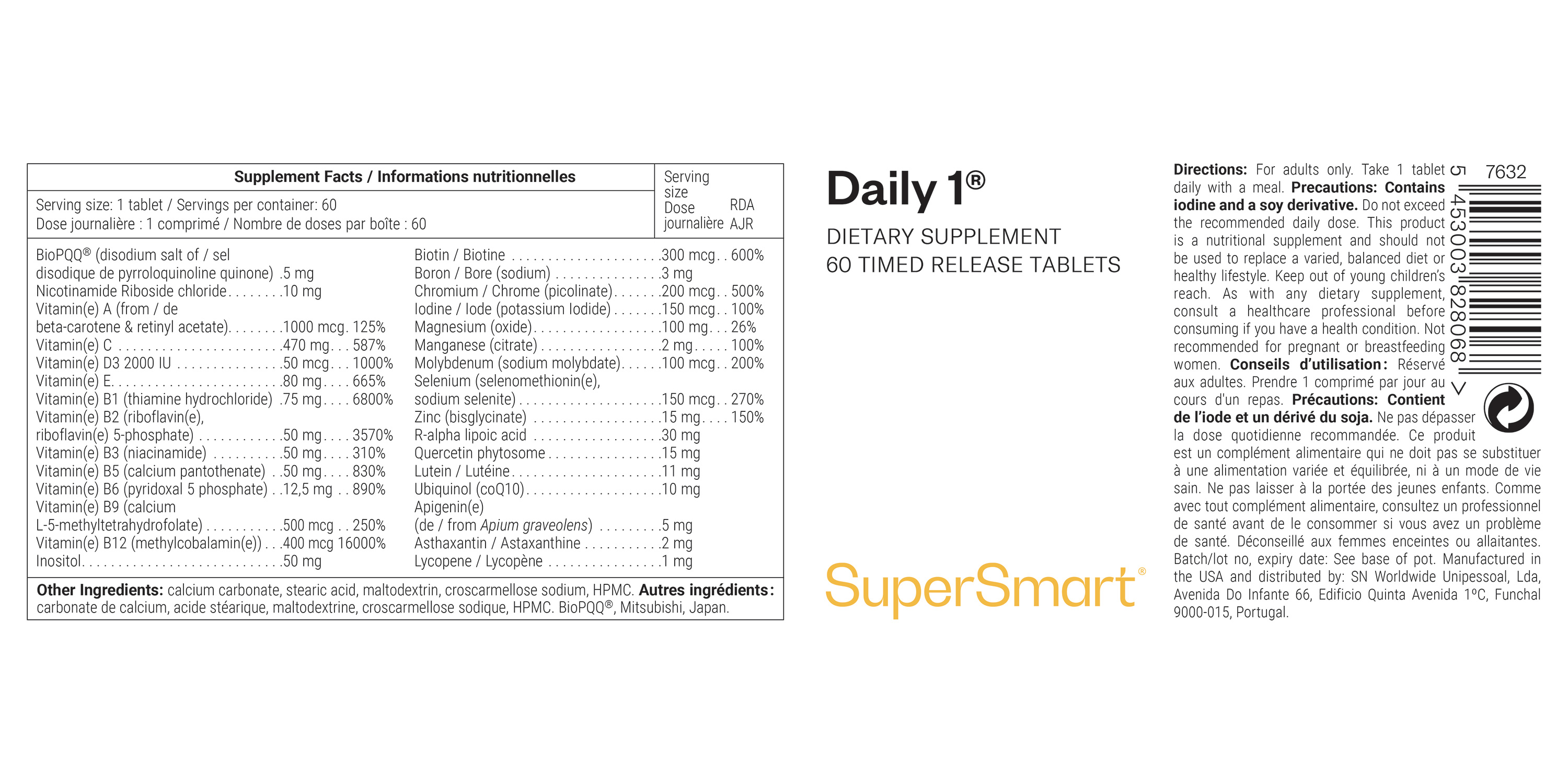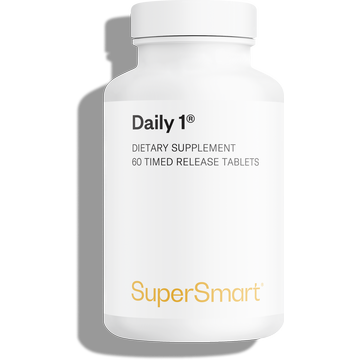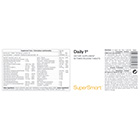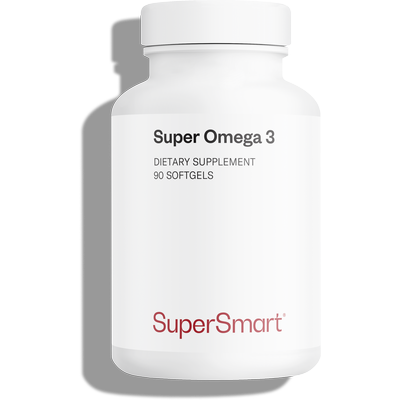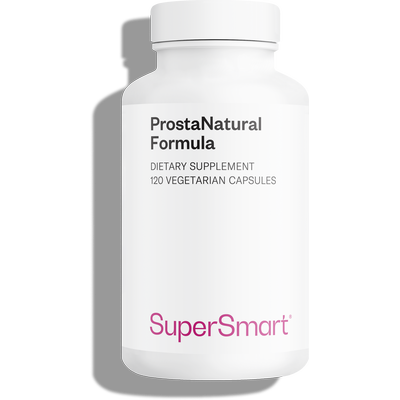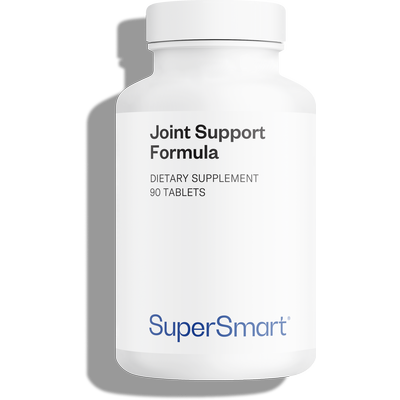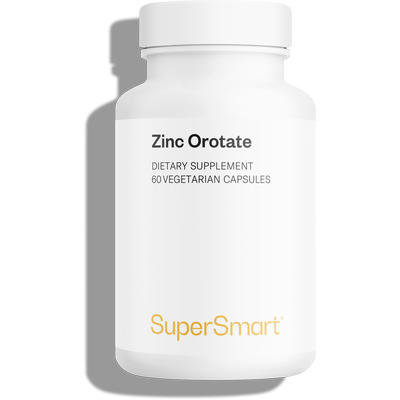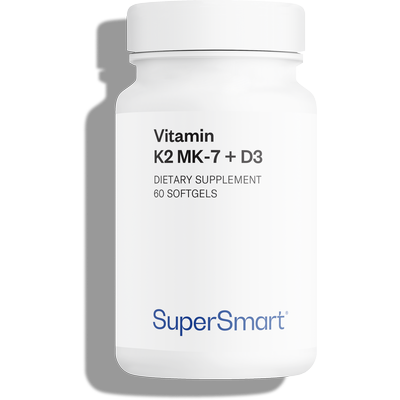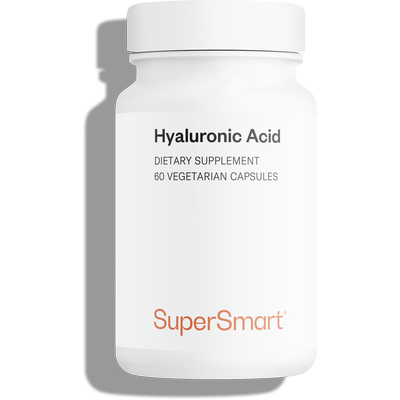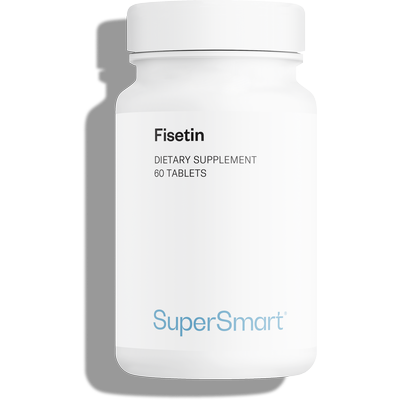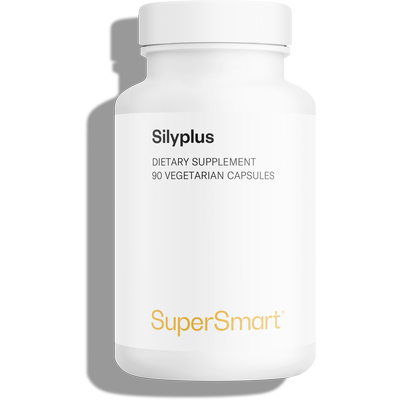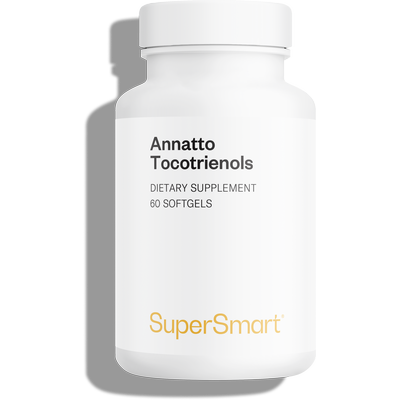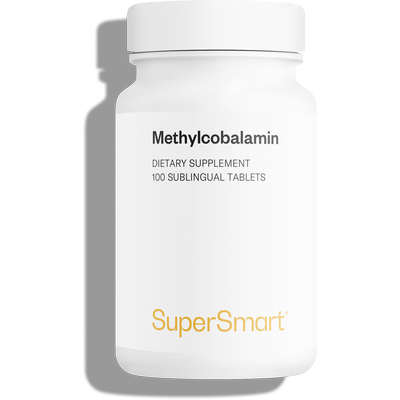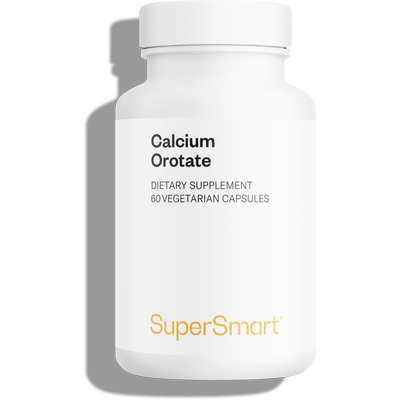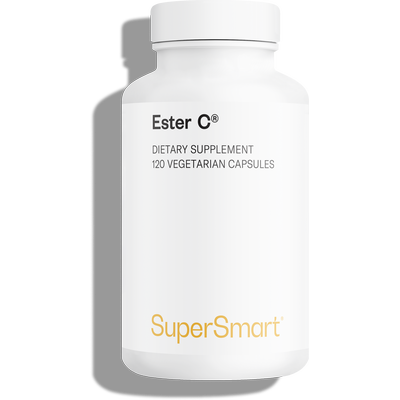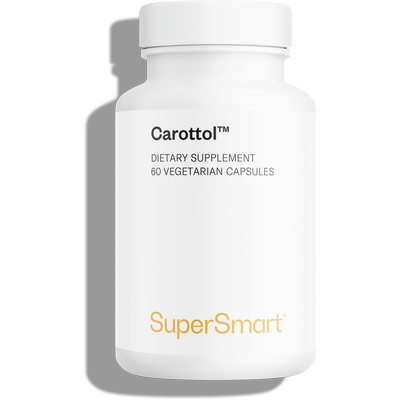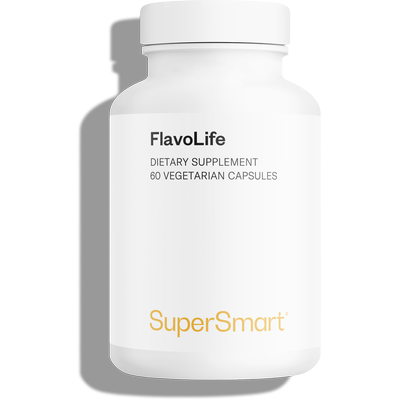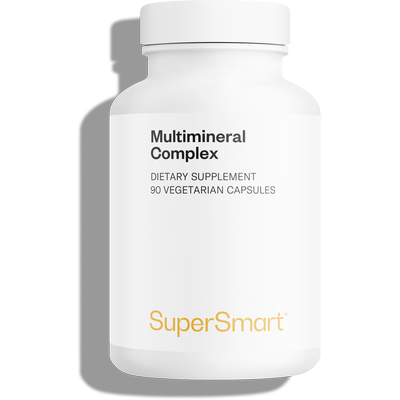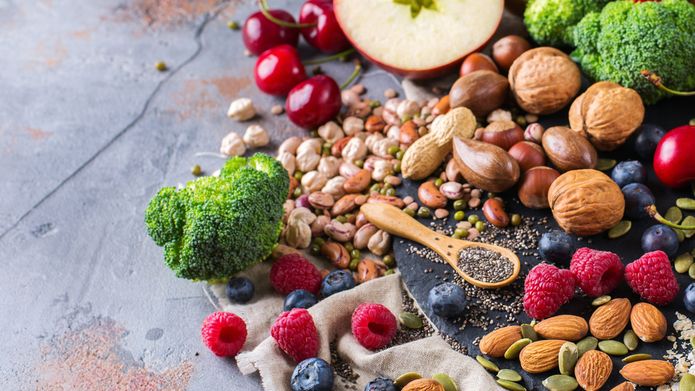Complete your selection
Daily 1® is a premium quality multivitamin supplement. It has been developed with the utmost care by SuperSmart, pioneers and experts in the creation of multivitamins.
This excellent new formulation contains no less than 30 vitamins, minerals and other compounds designed to compensate for any deficiencies and optimise your daily intake of nutrients. Daily 1® is also an exceptional source of antioxidants beneficial for health. Its Time Released mechanism enables the supplement’s contents to be released throughout the day, so preventing peaks and maximising the absorption of nutrients.
Its composition will help to restore your energy levels, reduce fatigue, stimulate your immune system and fight ageing of your cells. This new formulation is also distinguished by its ease of use: just one tablet daily is all that’s needed to gain maximum benefit (unlike standard multivitamins where you have to take many capsules a day). It makes life much easier and is a simple way of providing the nutrients you need.
What does Daily 1® consist of?
The unique formulation of Daily 1® combines 30 carefully-selected, synergistic ingredients:
- 12 vitamins, namely vitamin A, C, D3, E, B1, B2, B3, B5, B6, B8 (biotin), B9 (folic acid) and B12;
- 8 minerals, namely: boron, chromium, iodine, magnesium, manganese, molybdenum, selenium and zinc ;
- plus 10 other invaluable compounds, namely PQQ (a powerful antioxidant that stimulates mitochondrial production), inositol (a key cell messenger), alpha-lipoic acid (another highly-antioxidant compound), quercetin (the most active of the flavonoids), lutein (an excellent carotenoid), ubiquinol (the active form of the famous coenzyme Q10), nicotinamide riboside (a key precursor of NAD+, essential for energy metabolism and cellular health), apigenin (a key member of the flavone family), astaxanthin (a powerfully antioxidant terpene pigment) and lycopene (the carotenoid with the highest antioxidant potency) (1-10).
All the compounds in Daily 1® are present in their natural forms, providing maximum bioavailability to ensure outstanding efficacy.
What benefits are offered by Daily 1®?
The fact that over 80% of American doctors take multivitamin supplements is no coincidence ... (11) Multivitamins are recognised as being hugely beneficial to health (12).
Daily 1® will thus help to increase your energy levels, reduce your fatigue and combat the oxidative stress that damages your cells.
This energising, anti-ageing and immunostimulant multivitamin will also help to reduce your risk of developing a number of diseases, metabolic disorders, dermatological problems, etc.
The ingredients in Daily 1® help to maintain many of the body’s physiological functions. More specifically, they support:
- normal energy metabolism (B1, B2, B3, B5, B6, biotin, B12, C, iodine, magnesium, manganese);
- a reduction in fatigue (B2, B3, B5, B6, folic acid, B12, C, magnesium);
- goodimmune system function (A, B6, folic acid, B12, C, D, selenium, zinc, astaxanthin);
- protection of cells against oxidative stress (B2, C, E, manganese, selenium, zinc, alpha-lipoic acid, quercetin, lutein, ubiquinol, astaxanthin, lycopene...);
- normal nervous system function (B1, B2, B3, B6, biotin, B12, C, iodine, magnesium, inositol, alpha-lipoic acid, quercetin);
- stability of mental health (B1, B3, B6, biotin, folic acid, B12, C) ;
- a strong muscular system (D, magnesium);
- formation of both collagen, and thus healthy blood vessels, cartilage and gums (C), and of connective tissue (manganese);
- healthy bones (C, D, magnesium, zinc, manganese) and teeth (C, D, magnesium) ;
- good eyesight (A, B2, zinc, lutein);
- healthy hair (biotin, magnesium, zinc), skin (A, B2, B3, biotin, C, iodine, zinc, lycopene), nails (zinc) and mucous membranes (A, B2, B3, biotin);
- normal blood glucose levels (chromium, alpha-lipoic acid) and red blood cells (B2) ;
- protein synthesis (magnesium, zinc), normal metabolism of macronutrients (biotin, chromium, zinc), fatty acids (zinc) and sulphur-containing amino acids (molybdenum), good calcium and phosphorus absorption (D), control of glycogen and homocysteine metabolism (B6, folic acid, B12);
- cell specialisation(A), regulation of hormone activity (B6), fertility (zinc), thyroid function (iodine, selenium), normal DNA synthesis (zinc), cognitive function (iodine, zinc, inositol, quercetin) and cardiac function(B1, quercetin, ubiquinol, lycopene), etc. (13-29).
This list contains only health claims validated by European legislation on dietary supplements.
How should you take Daily 1®?
Along with its outstanding nutrient content, Daily 1® is marked out by its minimal protocol: you only need to take one tablet of Daily 1® a day to benefit from all its positive effects.
Ideally, the supplement should be taken with a meal. The fats in food facilitate the absorption of the supplement’s fat-soluble vitamins thus ensuring an optimal intake.
More specifically, we’d recommend taking Daily 1® with either your breakfast or lunch so that you gain maximum benefit from the supplement’s effects throughout the day.
4 more reasons to supplement with Daily 1®
- Unlike many multivitamins, Daily 1® contains neither iron nor copper. Supplements containing these minerals should actually be taken only in cases of diagnosed deficiency. When taken in excess, they can have pro-oxidant effects that are harmful to health.
- This multivitamin contains natural-source excipients only: there is no magnesium dioxide, magnesium stearate, silicon dioxide … which are known to contain nanoparticles.
- Another distinguishing feature of Daily 1® is the inclusion of PQQ, a high-quality compound rarely available in multivitamins. One clinical study showed that this antioxidant substance helps to reduce fatigue, and improve mood and sleep quality (30).
- In addition, Daily 1® contains a natural-source excipient called timed release coating which ensures the gradual release - and thus optimal absorption - of its various compounds.
What is in Daily 1®
Any questions?
Our team of nutrition experts and scientists has the answers.
Are you keen to increase your energy levels, lower your fatigue and reduce the effects of ageing? Here are some natural tips you can apply on a day to day basis:
- always try to get a good night’s sleep. To help with this, make sure you relax an hour before you go to sleep, move your bedtime earlier and ensure your bedroom is completely dark;
- take regular exercise (ideally three times a week);
- eat fresh, seasonal fruits and vegetables as they’re particularly high in fibre and antioxidants;
- drink plenty of water (around 1.5 litres a day);
- make sure you include sea food in your diet. Fish and other sea food is generally rich in omega-3s, DHA for example, which is excellent for brain and heart function (31);
- don’t over-eat;
- reduce your consumption of stimulants such as coffee, tea, fizzy drinks and alcohol;
- avoid ready-meals loaded with saturated fats (which block the arteries), salt (which increases blood pressure) and sugar (which accelerates skin ageing);
- get out in the fresh air every day, primarily to obtain the benefits of sunlight, a natural source of vitamin D production in the body. (32)
To accentuate the pro-immunity, antioxidant and anti-ageing effects of Daily 1®, we’d recommend considering two other supplements that act synergistically with its components:
- firstly, the supplement Adaptogenic Potion. This Ayurveda-inspired potion contains 10 ‘adaptogenic’ herbs and mushroomssupport and revitalise the body, prevent infections and fight all forms of stress(oxidative, biological, psychological ...) ;
- you can also try Super Omega 3.
may 23 2023
Excellent multivitamine.
october 30 2025
Bonne couverture pour tous les nutriments indispensables.
october 27 2025
**********
october 9 2025
très bon produit qui me convient très bien
october 9 2025
Das Produkt stärkt mein Immunsystem! Ich bin sehr zufrieden.
Need help?
You may also like

